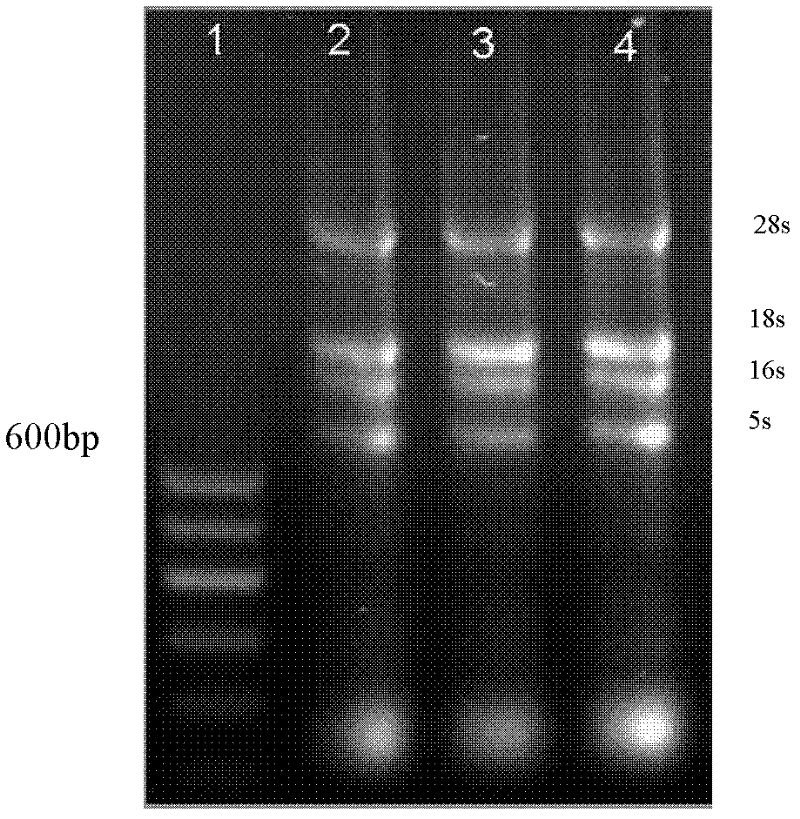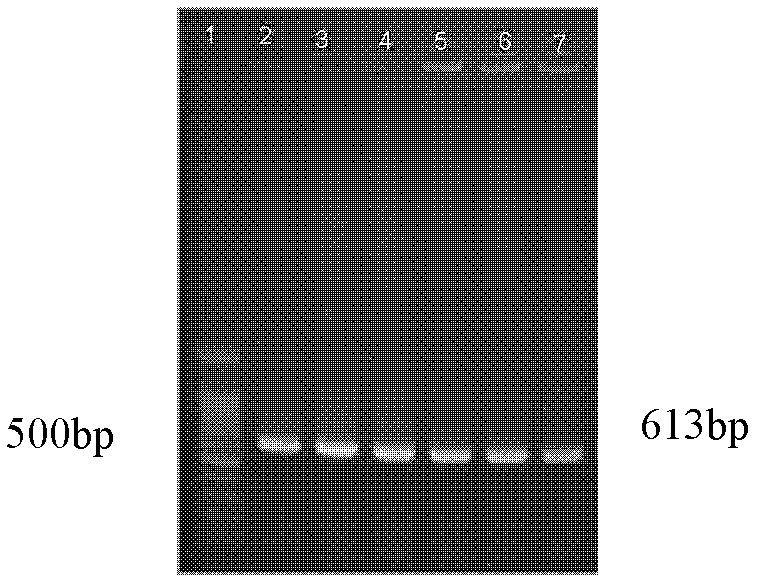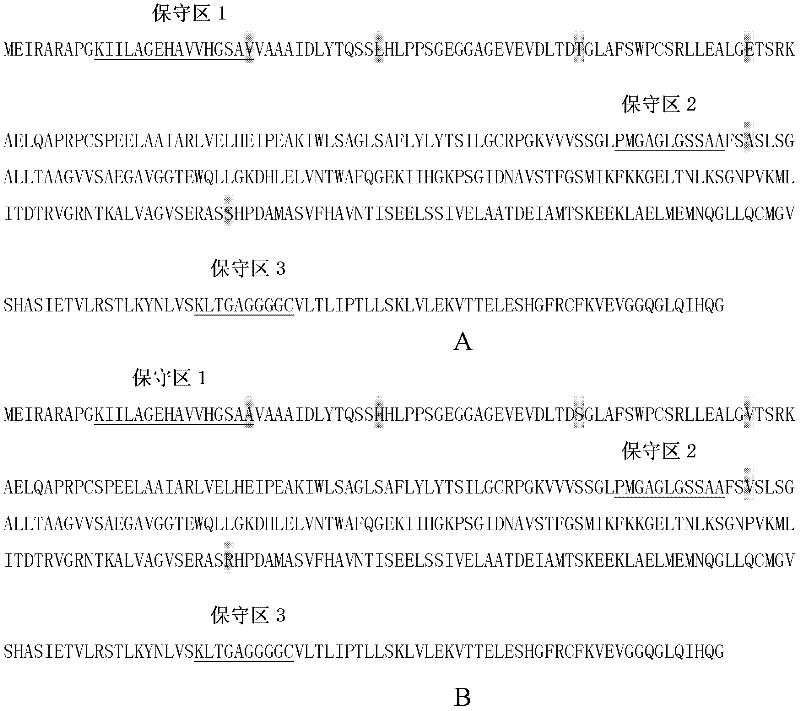Triticum aestivum Mevalonate kinase gene TaMVK, and separation cloning and enzymatic activity determination method thereof
A wheat mevalonate kinase, mevalonate kinase technology, applied in genetic engineering, plant genetic improvement, botanical equipment and methods, etc.
- Summary
- Abstract
- Description
- Claims
- Application Information
AI Technical Summary
Problems solved by technology
Method used
Image
Examples
Embodiment 1
[0055] Embodiment 1 (wheat leaf RNA extracts)
[0056] (1) The wheat variety Yumai was grown to the three-leaf stage in a constant temperature incubator (28° C.) with vermiculite.
[0057] (2) Grind the leaves into powder in liquid nitrogen, and transfer them to DEPC-treated EP tubes.
[0058] (3) Add appropriate amount of RNAiso Plus.
[0059] (4) Stand at room temperature for 5 minutes.
[0060] (5) Add 1 / 5 volume of RNAiso Plus in chloroform. Shake until creamy.
[0061] (6) Stand at room temperature for 5 minutes.
[0062] (7) Centrifuge at 12000g for 15 minutes at 4°C.
[0063] (8) Transfer the supernatant to a new DEPC-treated EP tube, add isopropanol equal to the volume of the supernatant, and mix well. Stand at room temperature for 10 minutes.
[0064] (9) Centrifuge at 12000g for 10 minutes at 4°C.
[0065] (10) Add 1 mL of 75% ethanol prepared with DEPC water to the precipitate. Centrifuge at 12000g for 5min at 4°C.
[0066] (11) Keep the precipitate and dr...
Embodiment 2
[0068] Example 2 (synthesis of the first strand of cDNA)
[0069] (1) Add in sequence to the DEPC-treated PCR tube:
[0070]
[0071] (2) Run on a PCR machine; 65°C for 5 minutes and then quenched on ice.
[0072] (3) Add to the PCR tube:
[0073]
[0074] (4) Carry out on PCR instrument: 42°C for 60min, 70°C for 15min
Embodiment 3
[0075] Embodiment 3 (intermediate sequence amplification)
[0076] 1 Primer design for intermediate sequences
[0077] Using Primer5.0 primer design software and DNAMAN software, primers were designed according to part of wheat mevalonate kinase EST sequence.
[0078] The upstream primer is: WmvkF: 5′GTTGGCGGAACGGAGTGGCA 3′ (Seq ID No: 3)
[0079] The downstream primer is: WmvkR: 5'CGACTTTGAAGCAGCGGAAACCAT3' (Seq ID No: 4)
[0080] The PCR system is: water 9.3 μL, 10x PCR buffer 1.5 μL, dNTP 0.7 μL, P10.6 μL, P2 0.6 μL, LATag 0.3 μL.
[0081] The PCR program is: 94°C for 5 min, 94°C for 45 s, 68°C for 45 s, 72°C for 90 s, 72°C for 10 min, 32 cycles.
[0082] 2 PCR result detection of intermediate sequence
[0083] Mix 8 μL of PCR amplification product with 1 μL of bromophenol blue, point it into 1.5% agarose gel, electrophoresis at 120V for 45 minutes, observe and take pictures with an ultraviolet gel imaging system, such as figure 2 Shown to check whether the target fra...
PUM
 Login to View More
Login to View More Abstract
Description
Claims
Application Information
 Login to View More
Login to View More - R&D
- Intellectual Property
- Life Sciences
- Materials
- Tech Scout
- Unparalleled Data Quality
- Higher Quality Content
- 60% Fewer Hallucinations
Browse by: Latest US Patents, China's latest patents, Technical Efficacy Thesaurus, Application Domain, Technology Topic, Popular Technical Reports.
© 2025 PatSnap. All rights reserved.Legal|Privacy policy|Modern Slavery Act Transparency Statement|Sitemap|About US| Contact US: help@patsnap.com



